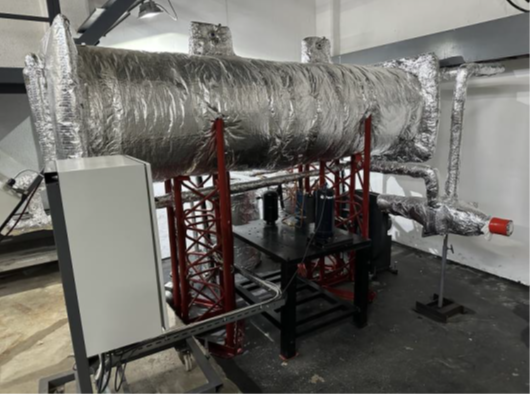
Thermal Energy Storage (TES) is essential for enhancing solar energy use in sectors such as heating, cooling, process heat, and power generation. Since solar energy fluctuates seasonally, daily, and hourly, solar systems alone cannot meet thermal power demands. Therefore, thermal storage technologies are integrated into solar thermal systems to provide stable heat generation when solar energy is variable and to extend system operation during non-sunny hours. The benefits of integrating TES in solar systems include the following: operation during periods of reduced or no sunlight; compensation for rapid energy flux variations; utilization of surplus energy; reduction in the size of components; coverage of peak demand; and shifting electricity production to higher-price periods.
Through TES, the annual capacity factor of a solar plant can be doubled, reaching 50% or more, which improves system performance and reduces electricity costs. A commonly used material in TES is Phase Change Material (PCM), such as salt, which was selected for the InnoSolPower project. The TES tank in this project can store 95.4 kWh of heat, much more than the 22.6 kWh a sensible storage tank of the same size can store, making the InnoSolPower tank 4.2 times more efficient in terms of storage capacity.
Thermal insulation is crucial in various industrial sectors to minimize the dependency on secondary active systems like mechanical or electrical systems, resulting in savings in natural resources and energy. Additionally, it improves system efficiency by preventing heat losses and reducing operational costs. In the case of TES systems, insulation helps reduce unavoidable heat losses due to the temperature difference between the storage tank and the environment, enhancing the efficiency of charging and discharging processes.
In the InnoSolPower project, a high-density, low-cost micro-thermal energy storage (μTES) system was developed for Concentrated Solar Power (CSP) systems. The energy is stored as latent heat, allowing a constant and predictable energy supply. However, a key challenge with μTES systems is the low thermal conductivity of the PCM, which makes the charging and discharging processes slow. To improve this performance, techniques such as using fins, porous media, nanomaterials in PCM, and encapsulating PCM units have been explored.
The μTES tank is designed with a storage capacity of 25 kWh. The final prototype features a cylindrical body housing sealed tubes encapsulating PCM salt, with hot thermal fluid circulating around the tubes. The tank's outer diameter is 790mm, the inner diameter is 780mm, and its length is 3050mm. The tank is made from St37 steel, and the PCM encapsulation uses high-grade stainless steel (316L) due to contact with the heat storage material. The suggested insulation material for the tank is rock wool, and the hot thermal fluid (HTF) connections are provided through end plates.
More information can be found on the InnoSolPower Project Website.
